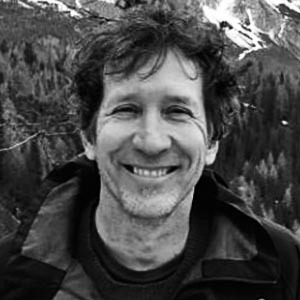One reason why governments worldwide struggle with implementing a permanent nuclear waste disposal solution is that they don’t adequately engage affected communities, most of which don’t want it in their backyards.
In a recent episode of Deep Isolation’s podcast, Nuclear Waste: The Whole Story, social scientist Dr. Thomas Webler discusses the challenges of reaching community consensus when deciding where to dispose of nuclear waste.
Webler, Research Fellow at the Social and Environmental Research Institute (SERI) and Associate Professor of Environmental Studies, Keene State College, is well-versed on the topic: He and his colleagues made recommendations to the Blue Ribbon Commission on America’s Nuclear Future and have advised the U.S. Department of Energy on nuclear waste disposal sites.

In this episode, “Community Consent is Key to Resolving Disposal Impasse,” Webler says consent-based siting must respect the principle of self determination, meaning a community ought to have the power to accept or decline an offer to become a nuclear waste disposal site.
“The most important thing that an institution could do to earn trust is to give the community the power and authority to close down, to turn off an operation, a facility, with no penalties or negative consequences,” Webler says.
He says it’s important that the entity seeking permission be open to listening, responding to concerns and discussing a variety of options rather than forcing a single solution or a particular disposal location.
He points to the 1996-1998 Seaborn panel in Canada as an example of a process that worked. The panel of experts visited different provinces and held public hearings to ensure that everyone had a chance to have their voices heard. Ultimately it was decided that a deep geologic repository was the best solution.
Consent is a concept that although challenging to define, is an admirable goal for any entity trying to find a site for a facility that could be perceived of as threatening. It is only through a process of engaging with a community and other stakeholders, as Webler describes, that informed consent can be achieved. When this process has been fair and transparent it can be a win for all involved.
Watch Webler’s episode on video or listen to the podcast and let us know what you think!
While Deep Isolation is producing this series, any opinions expressed by either the interviewers or their subjects are not necessarily representative of our official position.
Have a suggestion for someone we should interview? Email podcast@deepisolation.com. Learn more at deepisolation.com/nuclear-waste-podcast.
Related Posts
Waste Disposal Issues Plague Nuclear Energy Industry
